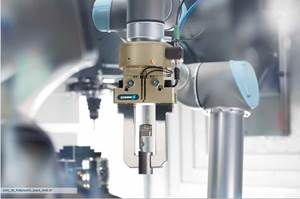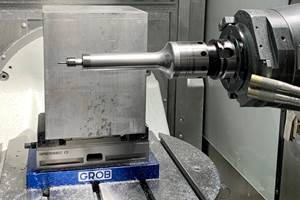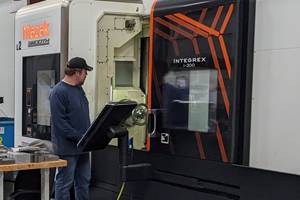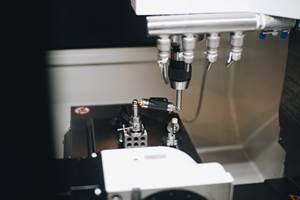United Grinding Celebrates 30 Years in Virginia Location
United Grinding recently celebrated 30 years in its Fredericksburg, Virginia location with a ribbon-cutting event opening a newly expanded and renovated facility.
Share





Serving this small customer actually places greater demands on the equipment provider’s facility. The expansion in Fredericksburg is a response to these special demands. For example, tool grinding customers are less likely to request on-site training, because they often lack the space for this. A new 7,500-square-foot showroom and demonstration area in Virginia will provide ample space for training. Another requirement for all of United Grinding’s customers—but for the small tool grinding customers in particular—is for machine service needs to be addressed before they significantly affect uptime. A tool grinding company might lose a valuable contract if it unexpectedly loses the capacity to fill a time-sensitive order. Accordingly, the Virginia site has been expanded to make room for the larger staffing level appropriate to the growing customer base that this location is serving. Finding, hiring and equipping this additional staff is the task to which United Grinding is turning its attention now.
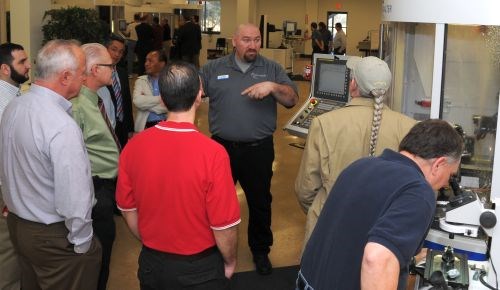
United Grinding’s Paul Ehrlich describes the Walter Helitronic Micro CNC tool grinder to a group of attendees to the company event.

One of the attendees to the event was Congressman Rob Wittman of Virginia. Application engineer Robby Faulkner describes knee implants machined on the Walter equipment.
Related Content
Lean Approach to Automated Machine Tending Delivers Quicker Paths to Success
Almost any shop can automate at least some of its production, even in low-volume, high-mix applications. The key to getting started is finding the simplest solutions that fit your requirements. It helps to work with an automation partner that understands your needs.
Read MoreHigh RPM Spindles: 5 Advantages for 5-axis CNC Machines
Explore five crucial ways equipping 5-axis CNC machines with Air Turbine Spindles® can achieve the speeds necessary to overcome manufacturing challenges.
Read More5 Tips for Running a Profitable Aerospace Shop
Aerospace machining is a demanding and competitive sector of manufacturing, but this shop demonstrates five ways to find aerospace success.
Read MoreBallbar Testing Benefits Low-Volume Manufacturing
Thanks to ballbar testing with a Renishaw QC20-W, the Autodesk Technology Centers now have more confidence in their machine tools.
Read MoreRead Next
Building Out a Foundation for Student Machinists
Autodesk and Haas have teamed up to produce an introductory course for students that covers the basics of CAD, CAM and CNC while providing them with a portfolio part.
Read MoreSetting Up the Building Blocks for a Digital Factory
Woodward Inc. spent over a year developing an API to connect machines to its digital factory. Caron Engineering’s MiConnect has cut most of this process while also granting the shop greater access to machine information.
Read MoreRegistration Now Open for the Precision Machining Technology Show (PMTS) 2025
The precision machining industry’s premier event returns to Cleveland, OH, April 1-3.
Read More























